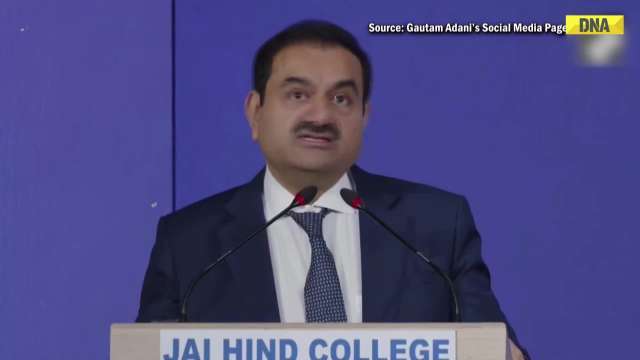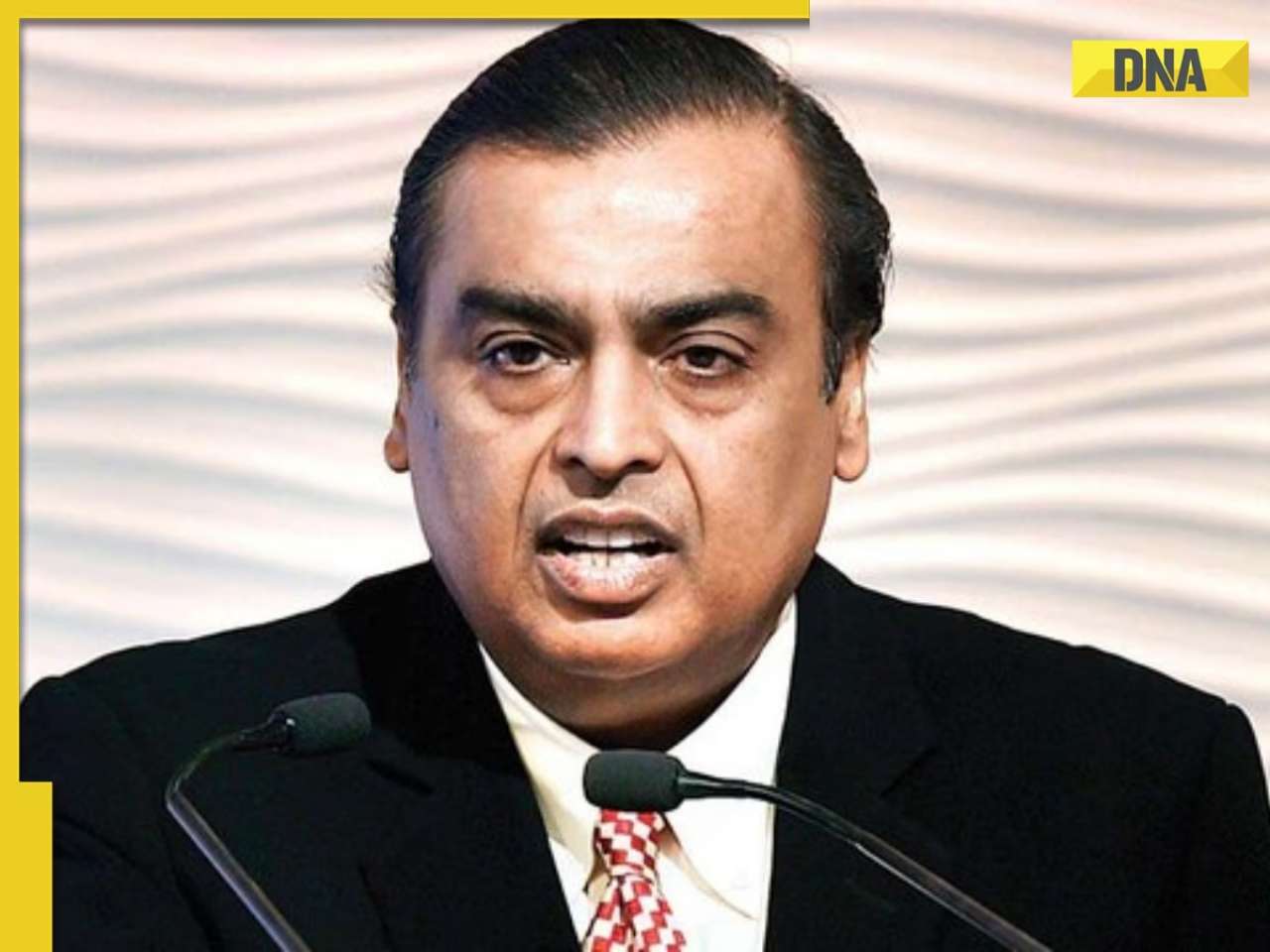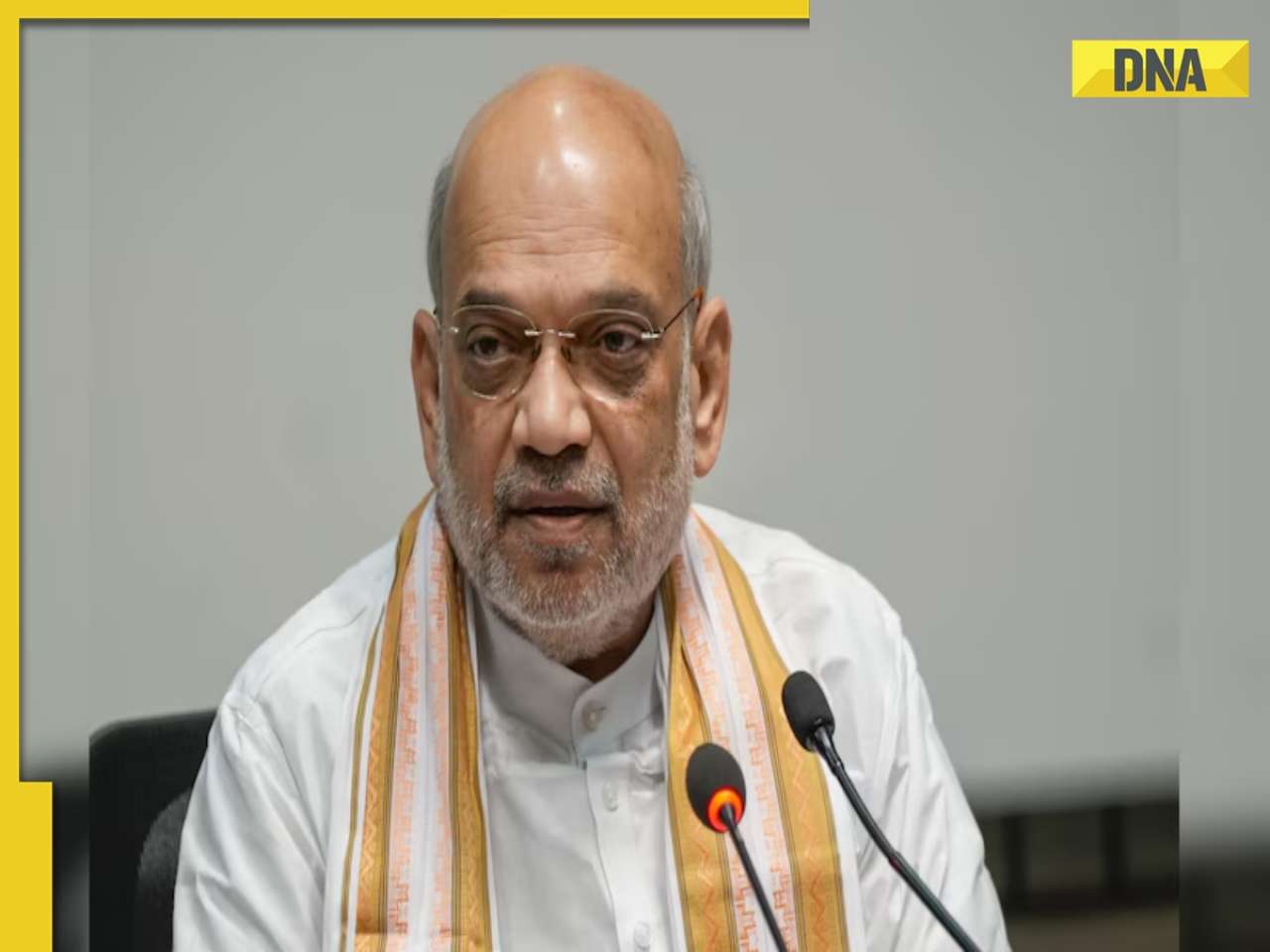Asian growth too will be dragged down, but India seen unaffected
HONG KONG: The world economy will slip into a recession in 2009 and, although Asian economic growth will be dragged down as a consequence, India will escape relatively unscathed, with only minor downside risk to growth, say economists at the leading Swiss bank UBS.
In calling a global recession next year, economists Larry Hatheway, Andrew Cates, Paul Donovan and Sophie Constable at the Global Economics Research team flagged the “dramatic escalation in financial market stress over the past few weeks, particularly in inter-bank credit markets.”
In essence, this confirms that the crisis in the financial world, which saw the collapse of leading Wall Street investment banks last fortnight, is spreading cancer-like to the larger, real-world economy, in the US and around the world.
As a reason for their grim prediction, the UBS economists also cite “the pronounced
slowdown in much of the forward-looking economic data of late” from the US and other developed economies.
“Our global growth forecast for 2009 has been lowered to 2.2%, a significant downward revision from our previous forecast of 2.8%, and below the 2.5% demarcation point of a global recession,” Hatheway and the others noted. “We now believe national recessions in the US and the UK will be deeper and longer than previously forecast.” And for the first time, they also anticipate a recession in the Eurozone.
However, there’s good news for the major emerging economies, including India. “We believe that most countries within the emerging economy bloc should avoid recession and will register positive growth, albeit considerably weaker than that achieved over the past four or five years.”
UBS’ China economist Want Tao scaled down China’s GDP growth projections from 10% to 9.6% in 2008 and further to 8% in 2009.
India’s GDP growth, in turn, is expected to dip to 6.8% in 2008 before rebounding to 7.3% in 2009.
UBS’ regional economist Duncan Wooldridge said he was downgrading economic growth for Asia ex-Japan for 2009 to “recession-like conditions” - 6.1% (against 6.9% earlier), a sharp fall from the 7.3% expected for this year.
Hatheway and the others at the Global Economics Research noted that the “financial market stress” of recent weeks had renewed pressures on inter-bank rates, which increased borrowing costs for the household and corporate sector. “The downward revisions to our growth outlook in developed economies therefore reflect poorer prospects for consumption and investment.”
In addition, key macroeconomic data over the past week - particularly the weak purchasing managers’ indices (PMI) from nearly every region - point to bad news. Global aggregate PMI - “our favourite leading indicator” - dipped to 44.2 in September, the weakest since the last global recession of the early 1990s. Typically, readings below 45 tend to coincide with global growth below 2.5%, which is a demarcation point for a global recession.
Going by the PMI, 21 of 25 economies are experiencing a contraction in the manufacturing sector. Ten of 25 economies are in the UBS’ estimate of recession, given by a reading below 45. Most of the developed economy bloc is included in this troubled category.
Even though manufacturing activity is no longer as important as services for some of the advanced economies, the economists note that “gyrations in the global manufacturing sector remain an important indicator of overall business confidence, as well as of hiring and capital equipment spending intentions.”
In response to the risk of recession, and a sharp fall-off in inflation figures, UBS economists expects central banks to adopt an easier monetary policy, lower real interest rates, and lower medium-term inflation expectations. They expect the US Federal Reserve Board to lower rates to 1% by the end of Q1 2009, and even sharper rate cuts in Europe.
Asia growth downgraded
Downgrading economic growth for Asia ex-Japan to 6.1% for 2009, Wooldridge noted that slower exports to the G3 and to the global economy would gradually lead to weaker domestic demand in Asian economies. An additional factor for the downgrade was the steep decline in Asian stock markets in recent weeks, which he said “is bound to influence consumption and investment.” As for corporate investment, the volatility in stock markets has “all but brought fundraising for investment to an end in Asian capital markets.” Besides, he asks, “even if businesses could raise more funds for investment why would they? Firms are becoming increasingly conservative regarding the outlook for profits and growth.”
In his reckoning, it’s too early to call a bottoming out of Asian economic growth as it’s only just beginning to slow. “Exports are just turning, while industrial production has only slowed for a few months. The key point isn’t so much that the global economy is slipping into recession... The salient point is that the global recession should be deeper and last longer than originally believed. Hence, the bottoming process is probably farther off than we would like.” Delayed recovery in economic growth and profits, he notes, adds another element of risk to picking the bottom too early, especially as there remains a long way to go in this process.
Wooldridge expects this to change by the first half of 2009. “We are not suggesting things will be good, but it is possible that 1H 09 could be a sort of ‘as bad as it gets scenario’. That could occur in the context of Asian central banks easing monetary policy and regional governments providing some fiscal stimulus.”
![submenu-img]() Ganesh Chaturthi 2024 shubh muhurat: Check city wise puja timings, visarjan date, and bhog for Ganpati Bappa
Ganesh Chaturthi 2024 shubh muhurat: Check city wise puja timings, visarjan date, and bhog for Ganpati Bappa![submenu-img]() 'Leaders in Delhi never liked me…’ Omar Abdullah alleges poll 'conspiracy'
'Leaders in Delhi never liked me…’ Omar Abdullah alleges poll 'conspiracy'![submenu-img]() Boney Kapoor announces new film, its title has a Mr India connect: 'Probably by December we...'
Boney Kapoor announces new film, its title has a Mr India connect: 'Probably by December we...'![submenu-img]() Meet actress, who worked for 17 hours straight on toxic sets, her mental health was affected, left industry, is now...
Meet actress, who worked for 17 hours straight on toxic sets, her mental health was affected, left industry, is now...![submenu-img]() Over 200 Patients celebrate freedom from diabetes in Madhavbaug's nationwide campaign 'Azadi Diabetes Se'
Over 200 Patients celebrate freedom from diabetes in Madhavbaug's nationwide campaign 'Azadi Diabetes Se'![submenu-img]() Aparajita Bill पर ममता बनर्जी को झटका, राज्यपाल ने कमियां गिना राष्ट्रपति के पास भेजा
Aparajita Bill पर ममता बनर्जी को झटका, राज्यपाल ने कमियां गिना राष्ट्रपति के पास भेजा![submenu-img]() Haryana Assembly Election 2024: हरियाणा में कांग्रेस प्रत्याशियों की पहली लिस्ट जारी, इस सीट से चुनावी मैदान में उतरी विनेश फोगाट
Haryana Assembly Election 2024: हरियाणा में कांग्रेस प्रत्याशियों की पहली लिस्ट जारी, इस सीट से चुनावी मैदान में उतरी विनेश फोगाट![submenu-img]() Hathras Accident: यूपी के हाथरस में बड़ा सड़क हादसा, 15 लोगों की मौत, कई घायल
Hathras Accident: यूपी के हाथरस में बड़ा सड़क हादसा, 15 लोगों की मौत, कई घायल![submenu-img]() Viral Video: Indigo की फ्लाइट में बंद हो गया एसी, गर्मी से परेशान यात्री हो गए बेहोश
Viral Video: Indigo की फ्लाइट में बंद हो गया एसी, गर्मी से परेशान यात्री हो गए बेहोश ![submenu-img]() Weather Alert: महाराष्ट्र-गुजरात में जोरदार बारिश, आंध्र-तेलंगाना में बाढ़, जानें दिल्ली-एनसीआर के लिए क्या है अलर्ट
Weather Alert: महाराष्ट्र-गुजरात में जोरदार बारिश, आंध्र-तेलंगाना में बाढ़, जानें दिल्ली-एनसीआर के लिए क्या है अलर्ट![submenu-img]() DNA Auto Awards 2024: Maruti Suzuki Swift nominated for ‘CAR OF THE YEAR’; check price, features
DNA Auto Awards 2024: Maruti Suzuki Swift nominated for ‘CAR OF THE YEAR’; check price, features![submenu-img]() DNA Auto Awards 2024: Hyundai Alcazar Facelift nominated for ‘CAR OF THE YEAR’; check details
DNA Auto Awards 2024: Hyundai Alcazar Facelift nominated for ‘CAR OF THE YEAR’; check details![submenu-img]() Hyundai Creta Knight Edition launched in India: Check price, features, design
Hyundai Creta Knight Edition launched in India: Check price, features, design![submenu-img]() DNA Auto Awards 2024: Citroen Basalt nominated for ‘CAR OF THE YEAR’; check price, features
DNA Auto Awards 2024: Citroen Basalt nominated for ‘CAR OF THE YEAR’; check price, features![submenu-img]() DNA Auto Awards 2024: Tata Curvv nominated for ‘CAR OF THE YEAR’; check price, features
DNA Auto Awards 2024: Tata Curvv nominated for ‘CAR OF THE YEAR’; check price, features![submenu-img]() UPSC topper IAS Shruti Sharma's marksheet goes viral on social media, check her scores in different subjects
UPSC topper IAS Shruti Sharma's marksheet goes viral on social media, check her scores in different subjects![submenu-img]() Meet man, who lost his mother in childhood, worked as milk seller, cracked NEET exam with AIR...
Meet man, who lost his mother in childhood, worked as milk seller, cracked NEET exam with AIR...![submenu-img]() Meet man who failed 35 exams, cracked UPSC exam twice, first became IPS then quit due to...
Meet man who failed 35 exams, cracked UPSC exam twice, first became IPS then quit due to...![submenu-img]() Meet man, who was forced into child marriage at 11, cracked NEET exam with AIR...
Meet man, who was forced into child marriage at 11, cracked NEET exam with AIR...![submenu-img]() Meet woman who cracked UPSC exam in first attempt without coaching at 22, got AIR 31, she is now posted as…
Meet woman who cracked UPSC exam in first attempt without coaching at 22, got AIR 31, she is now posted as…![submenu-img]() Mumbai: Fire Breaks Out At Times Tower In Mumbai, 9 Fire Units Deployed
Mumbai: Fire Breaks Out At Times Tower In Mumbai, 9 Fire Units Deployed![submenu-img]() 'Dharavi Project Is About Restoring Dignity...', Says Gautam Adani | Dharavi Redevelopment Project
'Dharavi Project Is About Restoring Dignity...', Says Gautam Adani | Dharavi Redevelopment Project![submenu-img]() Kolkata Doctor Case: CBI Visits RG Kar, Seizes Documents On Funds Used During Sandip Ghosh’s Tenure
Kolkata Doctor Case: CBI Visits RG Kar, Seizes Documents On Funds Used During Sandip Ghosh’s Tenure![submenu-img]() Giriraj Singh Attacked: Union Minister Giriraj Singh Assaulted In Begusarai, Bihar; Accused Arrested
Giriraj Singh Attacked: Union Minister Giriraj Singh Assaulted In Begusarai, Bihar; Accused Arrested![submenu-img]() Haryana Assembly Election 2024: Haryana Assembly Election Date Changed, Check Details Here
Haryana Assembly Election 2024: Haryana Assembly Election Date Changed, Check Details Here![submenu-img]() Mukesh Ambani set to challenge Adani, ITC with his Rs 3900 crore plan for...
Mukesh Ambani set to challenge Adani, ITC with his Rs 3900 crore plan for...![submenu-img]() NPCI launches 'UPI circle', check what it is and how it works
NPCI launches 'UPI circle', check what it is and how it works![submenu-img]() Mukesh Ambani's Reliance Jio to give tough competition to BSNL with this plan, it offers 5G data at just Rs...
Mukesh Ambani's Reliance Jio to give tough competition to BSNL with this plan, it offers 5G data at just Rs...![submenu-img]() This company repays Rs 20000 crore debt for... and it has a Ratan Tata connection
This company repays Rs 20000 crore debt for... and it has a Ratan Tata connection![submenu-img]() Meet woman, billionaire's daughter, who studied in London, now leads Rs 1124 crore company as...
Meet woman, billionaire's daughter, who studied in London, now leads Rs 1124 crore company as...![submenu-img]() From Cristiano Ronaldo to Virat Kohli: List of highest-paid athletes in last 12 months
From Cristiano Ronaldo to Virat Kohli: List of highest-paid athletes in last 12 months![submenu-img]() Meet actor who worked as waiter, sold tea, namkeen for 14 years, debuted in Bollywood at 42; now his net worth is...
Meet actor who worked as waiter, sold tea, namkeen for 14 years, debuted in Bollywood at 42; now his net worth is...![submenu-img]() Parents-to-be Deepika Padukone, Ranveer Singh seek blessings at Siddhivinayak with families days before baby's arrival
Parents-to-be Deepika Padukone, Ranveer Singh seek blessings at Siddhivinayak with families days before baby's arrival![submenu-img]() Gout remedies: 7 natural ways to lower uric acid levels in the body
Gout remedies: 7 natural ways to lower uric acid levels in the body ![submenu-img]() Active players with most centuries in international cricket
Active players with most centuries in international cricket ![submenu-img]() 'Leaders in Delhi never liked me…’ Omar Abdullah alleges poll 'conspiracy'
'Leaders in Delhi never liked me…’ Omar Abdullah alleges poll 'conspiracy'![submenu-img]() Over 200 Patients celebrate freedom from diabetes in Madhavbaug's nationwide campaign 'Azadi Diabetes Se'
Over 200 Patients celebrate freedom from diabetes in Madhavbaug's nationwide campaign 'Azadi Diabetes Se'![submenu-img]() 'When we were dragged on roads...': Wrestler Vinesh Phogat slams BJP
'When we were dragged on roads...': Wrestler Vinesh Phogat slams BJP![submenu-img]() India emerges as second-largest global 5G smartphone market, overtakes...
India emerges as second-largest global 5G smartphone market, overtakes...![submenu-img]() Union Home Minister Amit Shah releases BJP manifesto for J&K assembly elections
Union Home Minister Amit Shah releases BJP manifesto for J&K assembly elections













































)
)
)
)
)
)
)
)
)
)
)
)
)
)





)
)
)
)
)
)